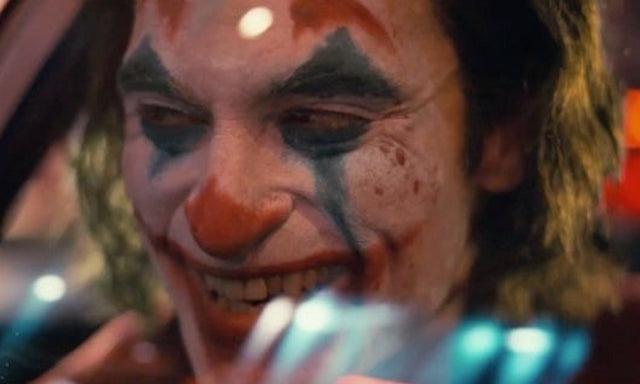Without a doubt, 'Joker' is easily the most disturbing movie ever made based on a popular comic-book character.
The way in which it handles Joker / Arthur Fleck's state of mind, the rationale - if there is one - behind his violence, all of it - it's unlike any comic-book movie ever made. Yet, oddly, the ending of 'Joker' is right out of any comic-book movie you can mention precisely because it's clearly setting itself up for a sequel. Or, at the very least, pointing towards the stories we already know.
In the riots that make up much of the final act of 'Joker', Thomas and Martha Wayne - played by Brett Cullen and Carrie Louise Putrello - are shot dead by a random person wearing a clown mask, leaving Bruce Wayne alive. This scene has featured in just about every iteration of Batman in either movies, TV, comics or videogames. It's the central moment of Batman's origins, yet in 'Joker', it's glanced over until the final scene.
After being embraced by Gotham as a hero, we cut to Joker, now imprisoned in Arkham Asylum. He laughs - not with his illness, mind, but seems to be genuinely laughing - at a joke. When the doctor asks him what it is, we see a brief flash of the child Bruce Wayne standing over his parents' dead bodies, and then tells the doctor that they "wouldn't get it."
The joke, of course, is that as much as Joker was created by the absence of his "father" and the abuse of his mother, he has himself now created Batman by the murder of Bruce's parents. Throughout the movie, the script plays with the question that Arthur Fleck and Bruce Wayne are half-brothers, but when we eventually find out the truth - that Arthur Fleck was adopted by his mother, and that he is not related to either her or Thomas Wayne - it causes him to break with reality entirely.
The legend throughout the comics is that Joker was created because he had one bad day and snapped, the same way that Batman was created. In the graphic novel by Alan Moore, 'The Killing Joke', Joker repeatedly taunts Batman with this fact and that they are not so different, even though they view the world in polar opposite ways. Where 'Joker' centres in on is that Joker's bad day happened the same time as Bruce Wayne's did.
This is what makes 'Joker', in the end, so disturbing. Whereas the likes of 'The Dark Knight' or Tim Burton's 'Batman' may have played with the idea that Joker and Batman are two sides of the same coin, 'Joker' makes it that much more literal. They are both victims of trauma, both products of it, and both know that chaos in Gotham is only a touch away. The difference, it seems, is that where Bruce Wayne / Batman sees himself as standing against it, Arthur Fleck / Joker is standing with it.
For all the protestations of director Todd Phillips that 'Joker' isn't your typical comic-book movie, or that it doesn't take any heed of the comics, the ending is straight comic-book. We're left with the knowledge that Batman will eventually come into existence, that Joker is still dancing around Arkham Asylum, simply waiting for his chance to get out - and the two are going to meet eventually.









































































